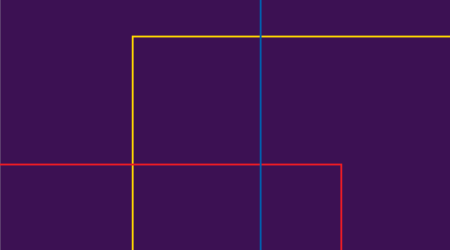As anticipated last week, the Government approved the Emergency Ordinance amending Law 220/2008 for the establishment of a promotion system for producing energy from renewable sources (“Law 220/2008”). The Emergency Government Ordinance no. 57/2013 (the “New EGO”) was published on Friday afternoon in the Romanian Official Gazette and will come in force on 1 July 2013.
The draft version of the ordinance (the “Draft EGO”) expressly mentioned that the new measures related to the support scheme could become applicable only after approval by the European Commission (the “EC”). However, the New EGO only indicates that such measures will be subject to EC notification without conditioning their effective implementation by such prior notification. Note that the EC decision approving the support scheme also sets out that any changes to the scheme must be notified prior to their implementation.
The New EGO brings substantial amendments to Law 220/2008, some of which differ from the ones initially set out in the Draft EGO. For your information. we have summarized below the main amendments brought by the New EGO.
1. Cases when the support scheme is not applicable
Two new situations have been added to the list when the support scheme is not applicable:
- for the electricity produced in photovoltaic power plants located on plots of land which, upon entry into force of the New GEO (i.e. 1st of July 2013), were within the agricultural circuit; and
- for the electricity delivered by dispatchable units (namely, for wind and protovoltaic, production capacities with an installed power above 5 MW) in excess of the quantities set out in the hourly notifications submitted by producers to the transmission system
It is unclear whether the restriction set out in paragraph 1.1 is meant to limit the possibility of locating photovoltaic projects on land removed from the agricultural circuit after the entry into force of the New EGO or to extend as well to photovoltaic projects built on agricultural land before 1 July 2013.
2. Temporary suspension of the right to be granted a certain number of green certificates (“GCs”)
As opposed to the Draft EGO, according to the New EGO the suspension will apply between 1 July 2013 and 31 March 2017, as follows:
- 1 GC for wind power; this GC may be recouped starting with 1 January 2018;
- 2 GCs for photovoltaic power; these GCs may be recouped starting with 1 April 2017; and
- 1 GC for small hydro power; this GC may be recouped starting with 1 April 20
The New EGO sets out that the suspended GCs shall be recouped in until 31 December 2020 at the latest. The details of the recouping mechanism must be set by ANRE.
Unfortunately the New EGO does not fully clarify how the suspension mechanism is to be implemented in conjunction with the potential decrease in the number of GCs to be granted to renewable power producers following the results of the overcompensation monitoring. The New EGO only provides that the first monitoring report based on which the overcompensation mechanism shall apply is the report published by ANRE on 29 March 2013 related to year 2012, which implies that the suspension and the overcompensation mechanisms shall apply concurrently.
On the basis of this report, ANRE proposed the decrease of the number of GCs from 6 to 3 for photovoltaic power plants and from 2 to 1.5 GCs for wind power plants.
3. Part of the power delivered to certain consumers not to be taken into account when calculating the annual GCs quota
The Draft Ordinance envisaged eliminating 50% of the power delivered to certain large consumers when calculating the annual mandatory GCs quota.
The New EGO only sets out that an undetermined percentage of the power delivered to final consumers (without differentiating between small and large consumers) may be excluded, in accordance with the applicable European legislation. In addition, the New EGO conditions the applicability of this rule on (i) the implementation of the annual programmes for the increase of energy efficiency; and (ii) the approval by Government Decision and subject to regulations issued by ANRE, after notification and a positive decision from the EC.
4. Obligation to trade GCs only on centralized markets
In line with the restrictions set out by the new Electricity Law no. 123/2012 on power purchase agreements (“PPAs”), the New EGO imposes that GCs may be traded only in a transparent, centralized and non discriminatory manner on the centralized markets managed by the relevant market operator (i.e. OPCOM).
5. Limited accreditation
According to the New EGO, ANRE may issue accreditation decisions for the beneficiaries of the support scheme only up to a certain limit determined each year by Government decision, on the basis of the updated information contained in the National Action Plan in the Renewable Energy Field. If the limit for the respective year is reached, ANRE temporarily stops issuing new accreditation decisions.
In a rather unclear provisions, the New EGO states that ANRE must regulate through the annual quotas the volume of energy benefiting from the support scheme, which will be taken over in the National Electroenergetic System on the basis of firm agreements with accredited producers.
6. Applicability of results of overcompensation analysis
According to the New EGO, the monitoring of the renewable market with the purpose of determining a potential overcompensation situation must be performed by ANRE every six months (instead of yearly, as currently set out by Law 220/2008). The report containing the relevant conclusions must be published within 90 days from the end of the monitoring period. Within 30 days from publication of a report ascertaining the existence of overcompensation, ANRE must propose to the Government measures for the decrease of the number of GCs granted for the relevant technology find more about workers compensation attorney in philadelphia. These measures must be approved by Government decision within 60 days and are applicable to renewable power producers which obtain the accreditation decision from ANRE after the entry into force of the Government Decision.
Therefore, the provisions in the current form of Law 220/2008 that a potential measure to decrease the number of GCs due to overcompensation will not produce effects (i) earlier than 1 January 2014 for photovoltaic and respectively (ii) earlier than 1 January 2015 for any other technologies have been canceled.
7. Unsold GCs
The Guarantee Fund, through OPCOM shall acquire and subsequently cancel the GCs which have been offered for sale, but not sold, by the relevant producers. The mechanism for acquiring the unsold GCs by OPCOM must be settled through secondary legislation approved by ANRE.
8. No carve-out for over-the-counter PPAs for small producers
The carve-out proposed by the Draft Ordinance with respect to the possibility of producers of renewable power owning power plants having an installed power of maximum 5 MW of concluding over-the-counter power PPAs has not been taken over by the New EGO.
9. Suppliers not allowed to invoice the penalty paid for the GCs they failed to acquire
Law 220/2008 sets out the obligation of the suppliers that fail to meet their mandatory annual quota to pay a penalty value for the GCs they failed to acquire (currently EUR 117.646). The New EGO sets out that this value cannot be included in the invoice to final consumers.
10. Financial securities for connection to the grid
In line with the recently proposed changes to the ANRE Regulation regarding the connection to public power grids, the New EGO refers to the right of the grid operators to require the potential producers applying for a connection permit to provide financial guarantees.
11. Acquisition of GCs
The New GEO sets out that ANRE shall recalculate and publish within no more than 30 days after its entry into force (i.e. 1st July 2013) the annual quota for the acquisition of GCs estimated for the second semester of 2013.
This news alert is a high level selection of main changes envisaged, it is for general information only and is not intended to provide legal advice.












